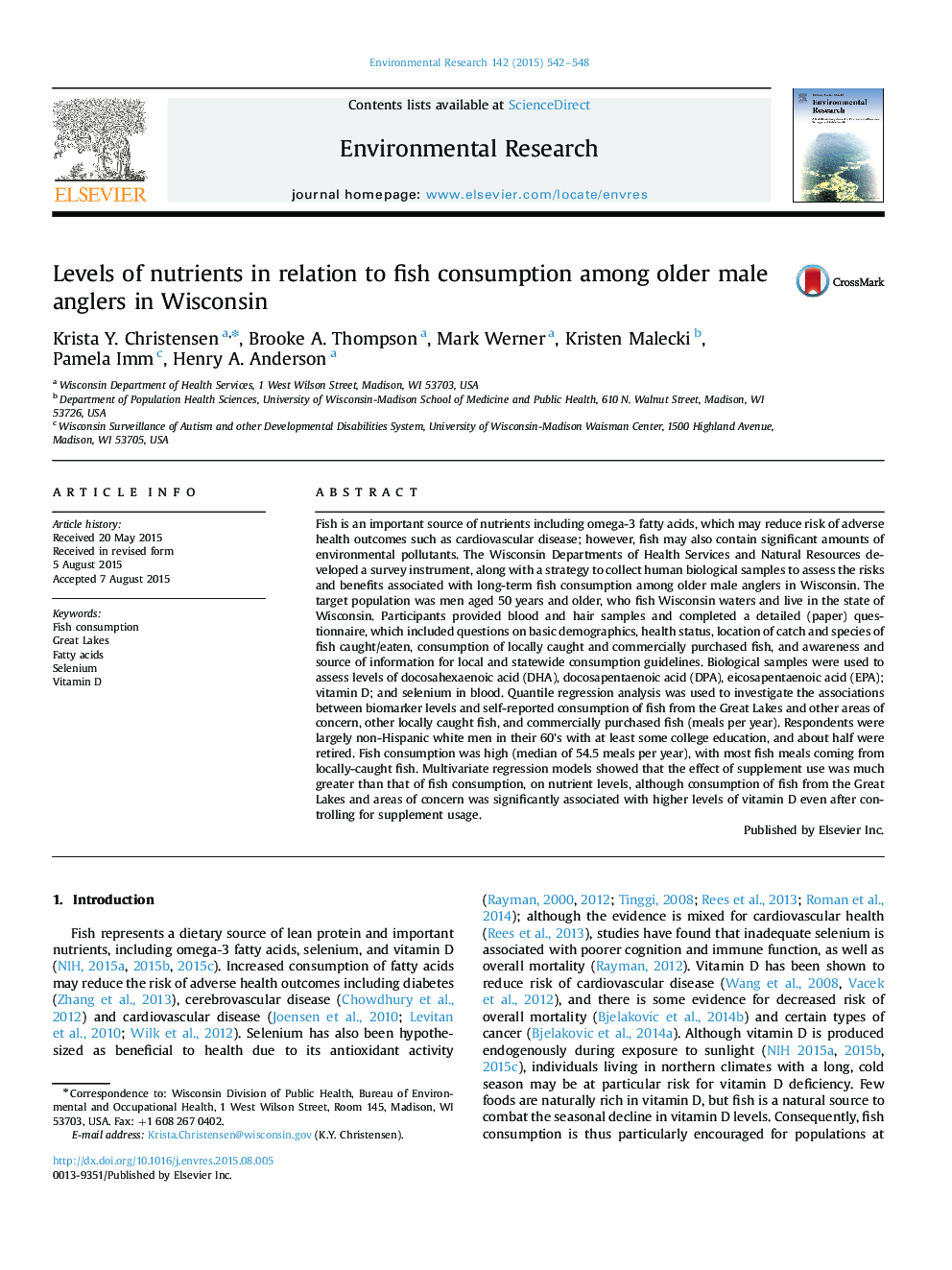| کد مقاله | کد نشریه | سال انتشار | مقاله انگلیسی | نسخه تمام متن |
|---|---|---|---|---|
| 6352195 | 1622559 | 2015 | 7 صفحه PDF | دانلود رایگان |
عنوان انگلیسی مقاله ISI
Levels of nutrients in relation to fish consumption among older male anglers in Wisconsin
ترجمه فارسی عنوان
سطوح مواد مغذی در رابطه با مصرف ماهی در ماهیگیران قدیمی مرد در ویسکانسین
دانلود مقاله + سفارش ترجمه
دانلود مقاله ISI انگلیسی
رایگان برای ایرانیان
کلمات کلیدی
مصرف ماهی، دریاچه های بزرگ، اسیدهای چرب، سلنیوم، ویتامین دی،
موضوعات مرتبط
علوم زیستی و بیوفناوری
علوم محیط زیست
بهداشت، سم شناسی و جهش زایی
چکیده انگلیسی
Fish is an important source of nutrients including omega-3 fatty acids, which may reduce risk of adverse health outcomes such as cardiovascular disease; however, fish may also contain significant amounts of environmental pollutants. The Wisconsin Departments of Health Services and Natural Resources developed a survey instrument, along with a strategy to collect human biological samples to assess the risks and benefits associated with long-term fish consumption among older male anglers in Wisconsin. The target population was men aged 50 years and older, who fish Wisconsin waters and live in the state of Wisconsin. Participants provided blood and hair samples and completed a detailed (paper) questionnaire, which included questions on basic demographics, health status, location of catch and species of fish caught/eaten, consumption of locally caught and commercially purchased fish, and awareness and source of information for local and statewide consumption guidelines. Biological samples were used to assess levels of docosahexaenoic acid (DHA), docosapentaenoic acid (DPA), eicosapentaenoic acid (EPA); vitamin D; and selenium in blood. Quantile regression analysis was used to investigate the associations between biomarker levels and self-reported consumption of fish from the Great Lakes and other areas of concern, other locally caught fish, and commercially purchased fish (meals per year). Respondents were largely non-Hispanic white men in their 60's with at least some college education, and about half were retired. Fish consumption was high (median of 54.5 meals per year), with most fish meals coming from locally-caught fish. Multivariate regression models showed that the effect of supplement use was much greater than that of fish consumption, on nutrient levels, although consumption of fish from the Great Lakes and areas of concern was significantly associated with higher levels of vitamin D even after controlling for supplement usage.
ناشر
Database: Elsevier - ScienceDirect (ساینس دایرکت)
Journal: Environmental Research - Volume 142, October 2015, Pages 542-548
Journal: Environmental Research - Volume 142, October 2015, Pages 542-548
نویسندگان
Krista Y. Christensen, Brooke A. Thompson, Mark Werner, Kristen Malecki, Pamela Imm, Henry A. Anderson,
